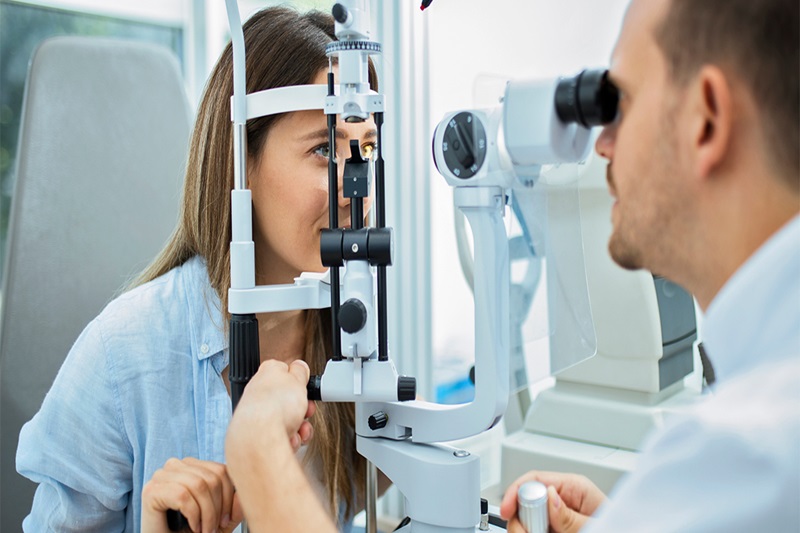
Have you ever struggled with blurry vision when trying to make out the fine print in your favorite book or squinted in front of your computer screen, struggling to decipher the specks of text? How often have you wondered if the constant headache you're dealing with could somehow be related to your vision? The eye, one of our most vital organs, often doesn't receive the attention it deserves - until something goes wrong, that is.
This is where the role of an optometrist becomes crucial. In this blog post, we will explore the importance and the functions of optometry and will understand why regular visits to an optometrist should be a routine part of our health check-ups. Now, let's dive in!
Who is an Optometrist?
An optometrist is a healthcare professional specifically trained to prescribe and fit lenses to improve vision, and to diagnose and treat various eye diseases. While ophthalmologists are medical doctors specializing in eye and vision care, optometrists focus more on regular vision care and minor eye conditions.
Optometrists play a significant role in providing primary vision care, ranging from vision testing and correction to the diagnosis, treatment, and management of vision changes. These professionals work to prevent sight-deterioration by identifying potential issues and suggesting preventative measures.
Why is Regular Eye Check-Up Important?
Clear and comfortable vision is essential for performing our everyday tasks efficiently, whether they involve working on a computer, studying, driving, or even pursuing a hobby. Yet, we often take our vision for granted and neglect regular eye check-ups.
Just like our physical health or dental hygiene, our ocular health needs routine care and maintenance. Regular visits to an optometrist can help in early detection and treatment of eye conditions, ensuring your eyes remain in the best shape possible.
What Services do Optometrists Provide?
Optometrists do more than just administer eye tests and issue glasses or contact lenses. They are trained to detect, diagnose and manage eye diseases, provide guidance on eye hygiene and nutrition, offering pre- and post-operative care for eye surgeries.
They play a vital role in managing systemic diseases that manifest ocular symptoms, like diabetes or hypertension. They also provide treatments for conditions such as dry eye and age-related macular degeneration.

The Pros and Cons of Regular Optometry Visits
Scheduled visits to an optometrist offer us many advantages, the foremost being early detection of eye-related conditions or diseases. Regular examinations provide the earliest opportunity for optometrists to detect signs of serious diseases like glaucoma, cataracts, macular degeneration, or even diabetes which might go unnoticed otherwise.
However, there are potential areas of concern as well, such as the cost associated with regular optometry appointments, especially for those without health insurance. Additionally, regular eye tests could sometimes lead to over-reliance on corrective lens, making the eyes lazy.
Future Trends in Optometry
The field of optometry is rapidly evolving due to technological advancements in eye care equipment and procedures. AI-based diagnostic tools, tele-optometry, and blue light glasses for reducing digital eye strain are just a few innovations that we can expect to change optometry's landscape in the near future.
The Interplay of Optometry and Interior Design
While this may sound surprising, there's significant overlap between optometry and interior design. Concepts such as lighting, color contrast, and furniture placement all play a significant role in daily visual tasks, enhancing overall visual comfort, thereby preventing unnecessary eye strain.
Conclusion
To summarize, the important role of optometrist plays in ensuring our eye health cannot be emphasized enough. By offering services that range from regular vision check-ups to detecting and managing serious eye and related diseases, they not only help improve our vision, but also, significantly contribute to our overall well-being. Optometrist visits should thus be a non-negotiable part of each individual's health routine. With the rapidly evolving field of optometry, one can only anticipate the emergence of more benefits in the future, making eye-care more efficient and accessible for all.